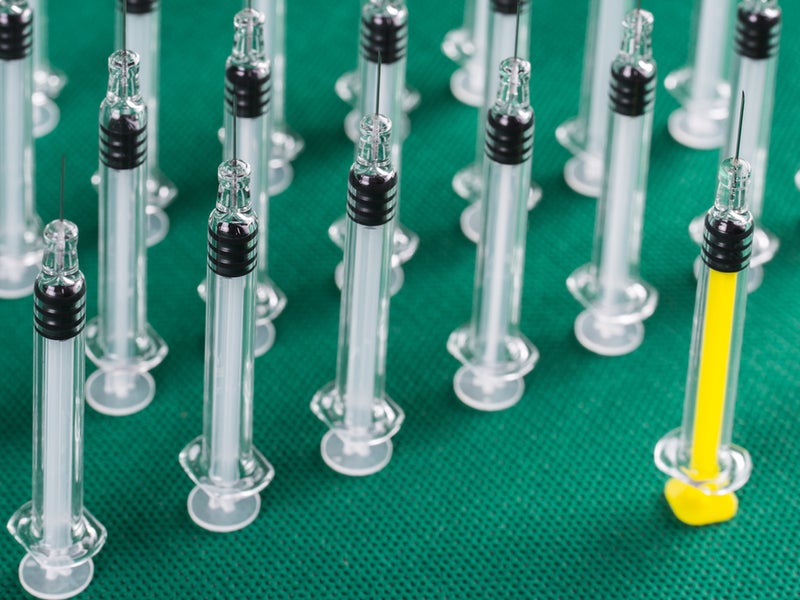The nanotechnology market for nanomedicines is represented by a variety of companies: some large, established companies that manufacturer a wide variety of pharmaceuticals and some smaller companies. Since nanotechnologies are approved by the FDA in combination with specific therapeutics, there is little competition between companies that produce nanomedicines.
Listed below are the key macroeconomic trends impacting the nanotechnology industry, as identified by GlobalData.
Clinical trials
There are many registered clinical trials in progress that involve nanotechnology for medicine. Many of these studies are related to oncology; other therapy areas include autoimmune diseases, anti-fungal agents, and rare diseases. After the crisis subsides, GlobalData expects a slow restart of these trials due to lost revenue during the pandemic.
Lack of nanotechnology experts
The absence of nanotechnology experts in both academia and industry will prevent rapid discovery of new nanotechnologies for medicine. Lack of expertise will also delay promising technologies from obtaining regulatory approval and commercialisation across geographic regions. Due to the pandemic, company resources will be focused on hiring and developing expertise related to Covid-19, to maintain a competitive edge. Others will stop hiring altogether. Even after the pandemic, the resulting lack of expertise will delay promising technologies from obtaining regulatory approval and commercialisation across geographic regions.
Mergers and acquisitions
Mergers and acquisitions (M&As) are a significant part of the nanomedicine industry overall. In an industry that is typically slowed by extended timelines of product development, clinical testing, and federal regulation, M&As allow for growth and innovation to happen at a more rapid pace. In nanomedicine, M&As happen in all arenas, from large leading companies acquiring start-ups with novel technologies, to smaller companies acquiring their direct competitors, to start-up companies acquiring companies with complementary technology. M&As between companies producing nanomedicines are expected to slow down as companies shift their attention away from developing non-COVID-19 related products.
Nanomedicine production
Nanomedicines are often more complicated to synthesise and produce compared to standard drug compounds. In some cases, this might limit the ability of drug manufacturers or pharmaceutical companies to produce large quantities of nanomedicines. If issues related to production are not addressed, companies will not be so eager to invest resources into this industry. In the case of liposomes, there has been much success with producing simple structures for molecule compartmentalisation. However, more innovative designs have been met with synthesis challenges. GlobalData does not expect the production of nanomedicines that are already marketed to be impacted by COVID-19. Patients depending on these medications will still require a constant supply.
This is an edited extract from the Nanotechnology in Medicine – Thematic Research report produced by GlobalData Thematic Research.

US Tariffs are shifting - will you react or anticipate?
Don’t let policy changes catch you off guard. Stay proactive with real-time data and expert analysis.
By GlobalData





